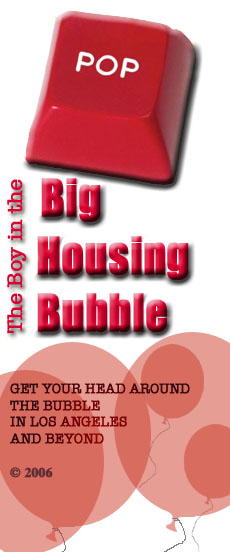Why the Agents Aren't Getting Rich
If you think all real estate agents have been getting rich quick during the years of the housing boom, think again. As pointed out here at The Boy in the Big Housing Bubble, there's just too many agents vying for too few houses — 1 agent to every 14.5 owner-occupied houses in California alone by my last count. A story on Slate by Austan Goolsbee, an economics professor at the University of Chicago, debunks the "bubble-lusions" and gets into depth about why most agents aren't laughing all the way to the bank:
During most of history's great economic bubbles, only a few people made a mint from the bubble itself. Instead, it's often the people supplying the bubble's participants who stand the best chance of reaping profits that last after the good times end. That's the lesson of the 1849 gold rush, during which Levi Strauss sold blue jeans to miners and made a fortune far greater than any of his customers.
The current housing bubble—prices have doubled in the last four years in hot markets like Boston, Washington, D.C., and parts of California—is breeding a lot of would-be Strausses. One seemingly obvious path to riches is to become a real-estate broker. For many decades, agents have successfully kept their payments steady as a fixed share of the value of the houses they sell. In most cities, the rate is around 6 percent, split between the buyer's and the seller's agents. The lack of price competition has attracted the notice of anti-trust authorities at the Justice Department who are planning to sue the National Association of Realtors over some of their anti-discounting policies. Economically speaking, it's hard to explain why the steady commissions have lasted so long—perhaps agents band together to blacklist competitors who undercut prices, or perhaps the NAR's extensive "education" program for realtors excels at indoctrination.
Read Austan Goolsbee's entire story at this link
— The Boy in the Big Housing Bubble




<< Home